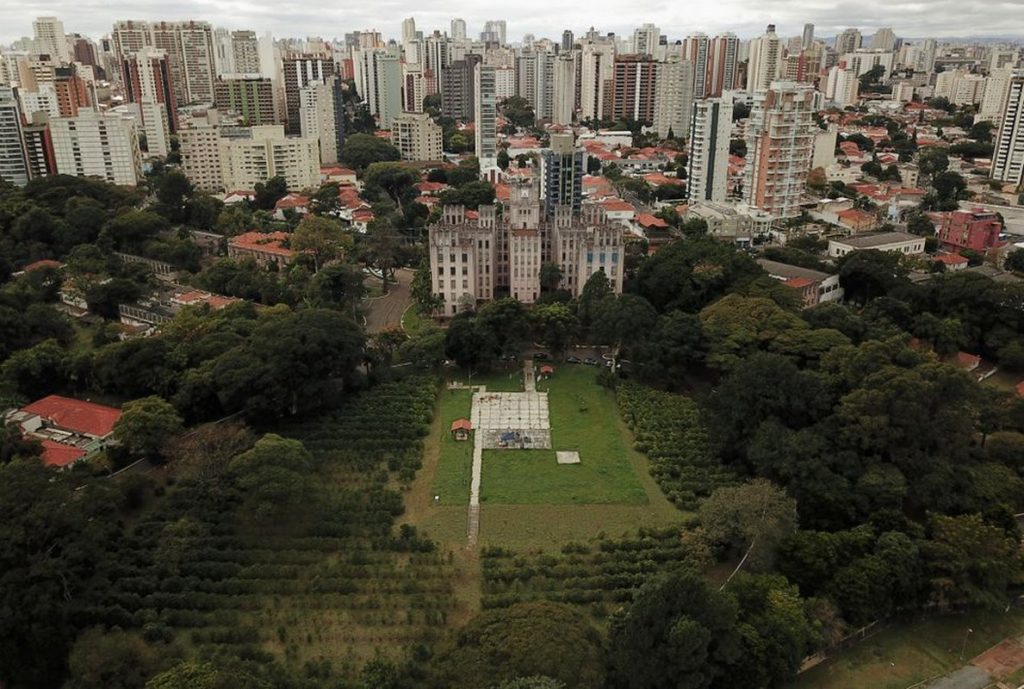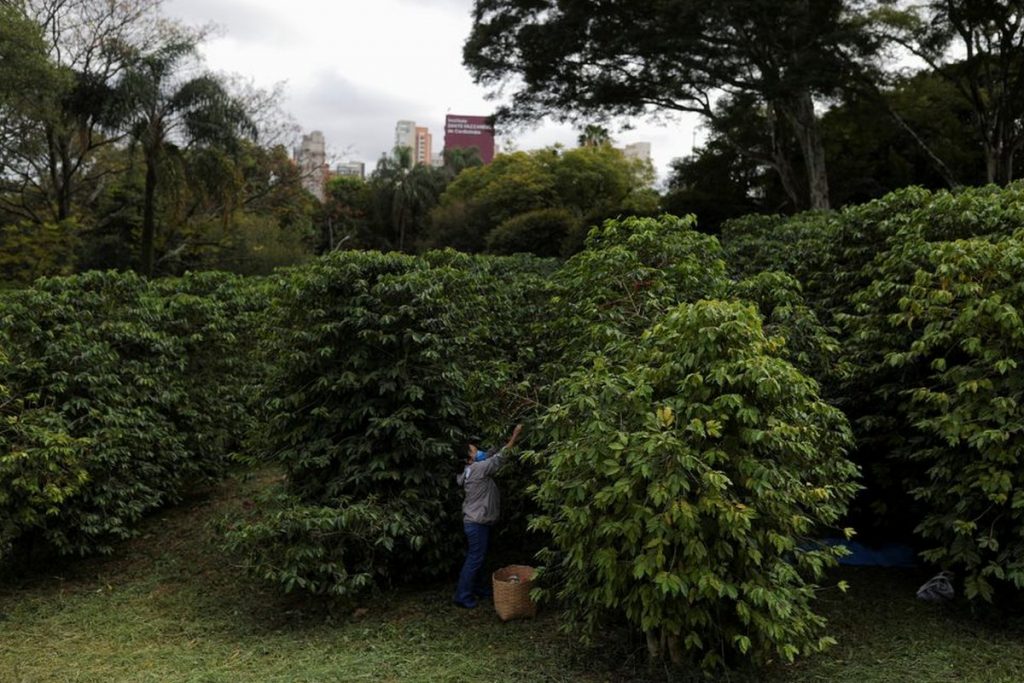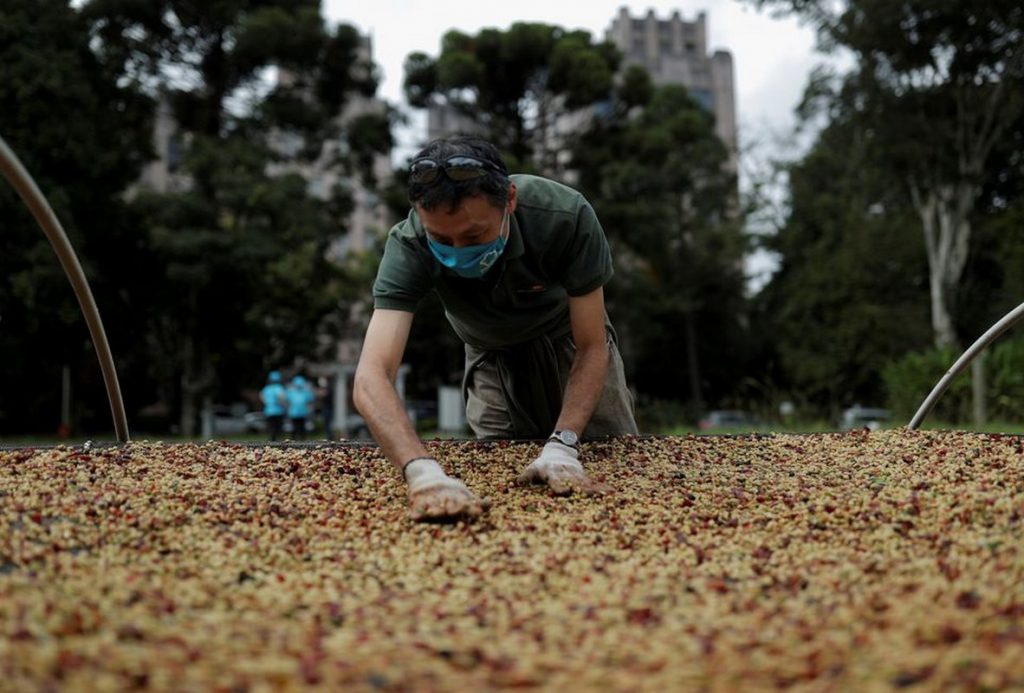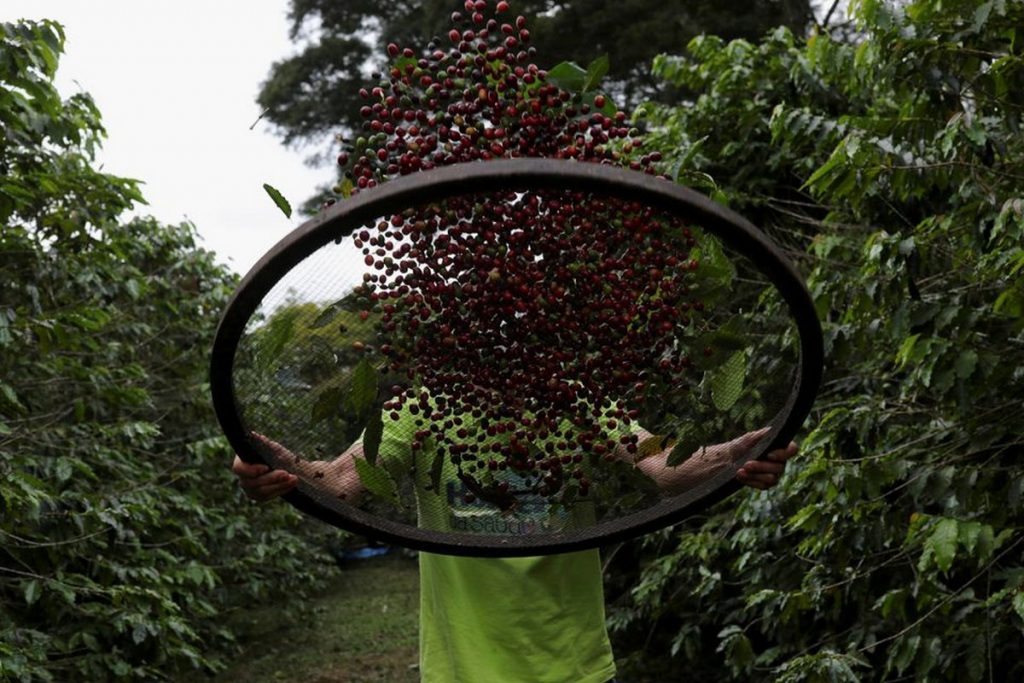Brazil’s arabica harvest kicked off symbolically this weekend with volunteers picking through one of the world’s largest urban coffee farms at Sao Paulo’s Instituto Biológico, a hub of agricultural research in the middle of the metropolis.
In the shadow of the institute’s towering art-deco headquarters, the group worked its way through neat rows of 2,000 trees, marveling at the pastoral scene just a stone’s throw from the city’s central Ibirapuera Park.
“I couldn’t believe that here in Sao Paulo there’s a place like this with a coffee plantation,” said Luciano Caporroz, a lawyer volunteering in the harvest. “It’s like therapy, right?”
Founded in the fight against the coffee borer beetle, the 93-year-old institute continues to research agricultural pests and donates most of its annual 600 kg (1,323 lb) harvest to charity.
Prior harvests have drawn as many as 1,500 visitors to the institute. But this year organizers invited a smaller group of volunteers with ties to the institute, due to precautions during the COVID-19 pandemic.
 Alghadeer TV Alghadeer TV
Alghadeer TV Alghadeer TV




